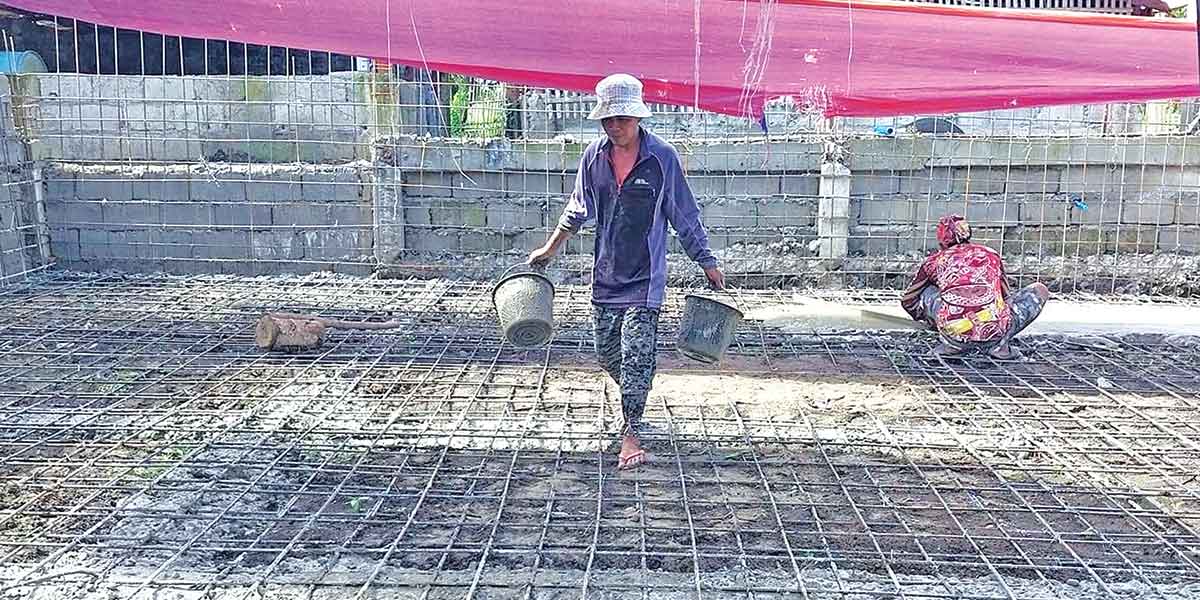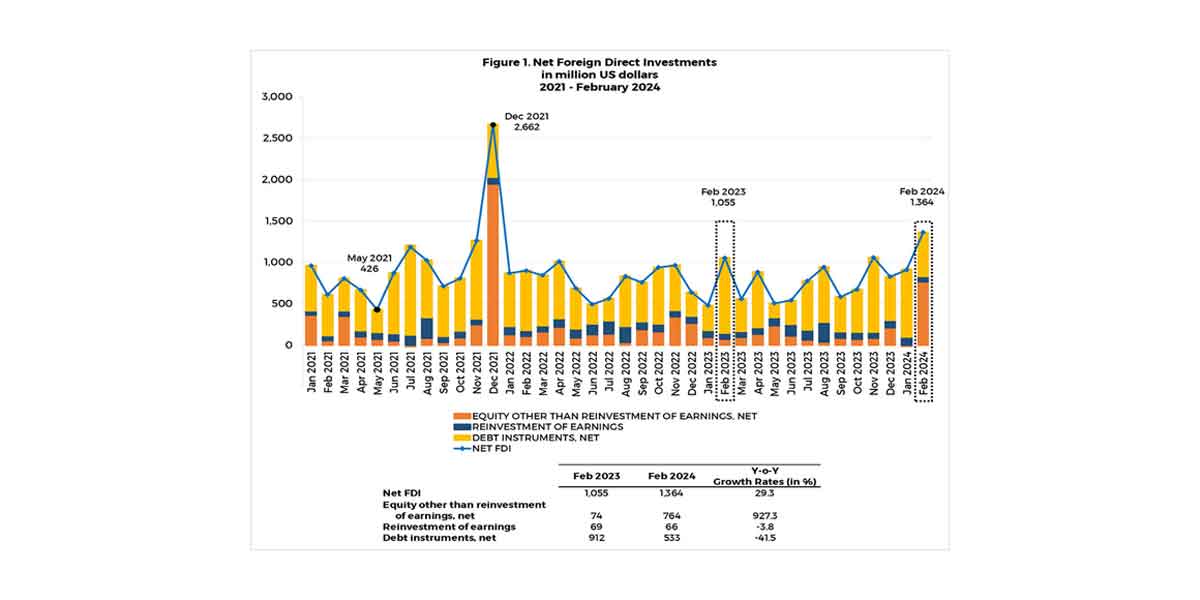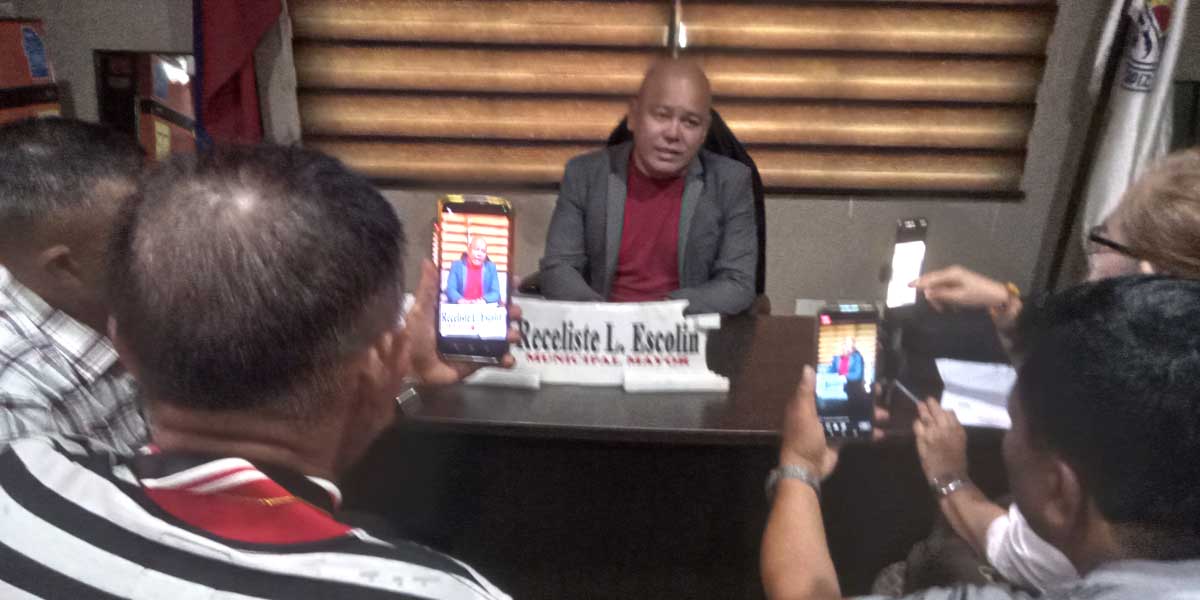
By Joseph B.A. Marzan
Melfie Cabrillos waited three months for the opportunity to come home to her family in Iloilo City, after local authorities in Cebu City declared an Enhanced Community Quarantine (ECQ) amid the coronavirus disease 2019 (COVID-19) crisis.
Cabrillos, along with 53 other Locally-Stranded Individuals (LSIs), had been stuck inside their ship for 41 hours as local government authorities refused to accept them upon arrival.
Cebu City Mayor Edgardo Labella imposed the general community quarantine on March 16, and was upgraded to ECQ on March 26.
Cabrillos’s classes at the University of San Carlos-College of Law shifted to online platforms as the virus continued to spread in Cebu.
The situation continued in the next two months, leading to anxiety as she can only do so much inside her condominium.
“For the entire time under quarantine, almost three months, and most of the time I was the only one staying in the rented condominium unit, I didn’t go out because I was nervous about getting exposed,” Cabrillos said.
When the Department of Interior and Local Government (DILG) put out Memorandum Circular 2020-087 on May 21, which allowed her return to Iloilo, Cabrillos didn’t hesitate to buy her plane ticket and prepare her documents with local authorities in Cebu City.
Cabrillos was supposed to return on June 1, but it was delayed to June 3. Ultimately, she cancelled her flight.
Instead of booking for another flight, she arranged to travel by sea.
She faced another hurdle at that point: her travel documents had not been out at that time.
The documents were processed on May 28 and were only approved on June 16, four days before she was slated to leave for Iloilo on June 20.
“Originally, I didn’t want to travel by boat because of the risk of exposure, but realizing the ship has a private room, I chose to pursue and buy a ticket for a private room. Before you can buy a ticket, you need to have the documents. I started processing my documents on May 28 and received my documents on June 16. That’s how slow it was,” she said.
Even during the trip home, anxiety filled Cabrillos because of the risk of exposure to different people.
“Do you know the feeling of not being out for three months because you were scared to be exposed, and here you are risking your safety being exposed to different people? The only good thing, perhaps, was that when I went aboard, since I had a private room, I was alone and I had my own food for a day,” she said.
Shortly after leaving, DILG Secretary Eduardo Año told provincial and city directors as well as local government units (LGU) not to accept LSIs from Cebu City, which is still under ECQ.
By the time she and the others arrived at the Port of Iloilo at 10 a.m. on June 21, she thought that she could finally savor the air she was all too familiar with.
They were then told that the DILG and LGU officials had refused their entry into the city and province of Iloilo and were even considering sending them back to Cebu.
She had already missed celebrating Father’s Day at home. Despite this, her nerves have seemed to calm down, but only to be replaced with other worries. This time, for herself and her fellow passengers.
“It wasn’t as nerve-racking at the time. I think I was just worried because I was inside my room from the entire day of June 21 to the morning of June 22 as we were still waiting for announcements as to what would happen, so we had to be ready all the time. There was a general feeling of worry at the time because we had senior citizens and children aboard, too,” she said.
They eventually disembarked from the ship around noontime of June 22, with Iloilo City residents like Cabrillas being taken directly to the Diamond Jubilee Hall for testing using rapid antibody test kits and Reverse Transcription-Polymerase Chain Reaction (RT-PCR) swab kits.
None of the passengers in their batch had tested positive for antibodies, but they continued to stay under Quarantine at the Jubilee Hall until their RT-PCR results came out.
While in quarantine, she had continued to feel anxious because there was still risk of being exposed, given the limited facilities.
There was only one restroom for both males and females as the original male restroom was out of order.
Occupants of the facility took baths using a pail and dipper.
Multiple “rooms” were only provided with one extension cord each to use for power supply.
Because there were children at the facility, it was difficult for Cabrillos to work and study there.
“I really wanted to go home, because the restrooms here are shared. I was under quarantine for many months in Cebu, then isolated myself in a room while travelling back home, then after this I’m now sharing spaces, especially bathrooms. It’s scary because we don’t know which one of us was positive at this time,” she said.
Her family had the opportunity to constantly visit her there, bringing her food and beddings, and other items which she could use during her stay.
She said that she feels less anxious now that she had returned to her hometown.
“I think I was more anxious in Cebu because there were a high number of cases. At the same time, we didn’t know who in our surroundings were positive [for COVID-19] because there wasn’t much testing. The only thing that changed was the setup because back there I was comfortable with a bed and study table,” she said.
As of this writing, her RT-PCR test results have not yet come out.


















